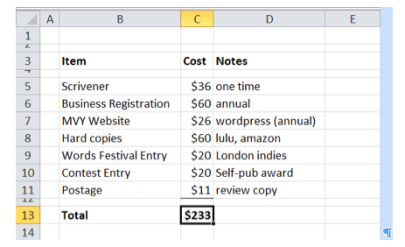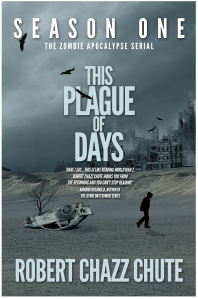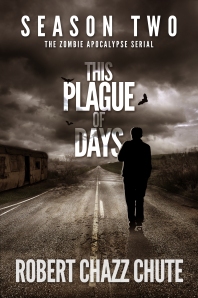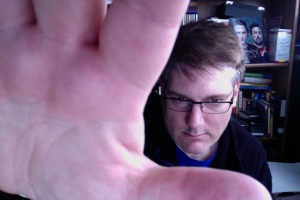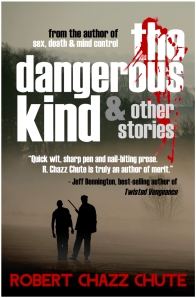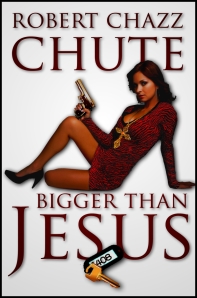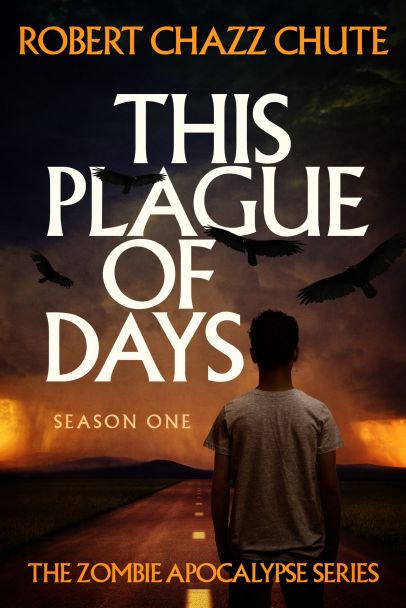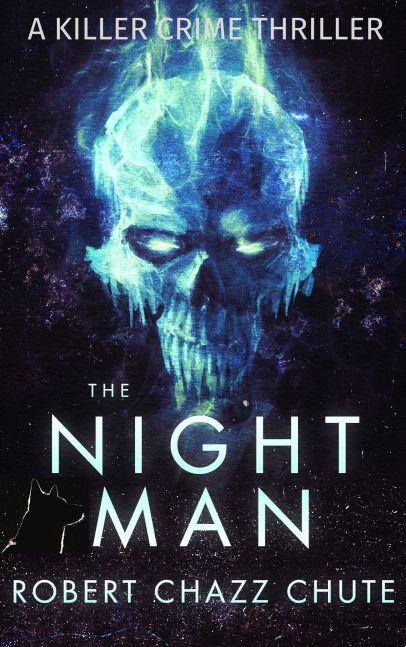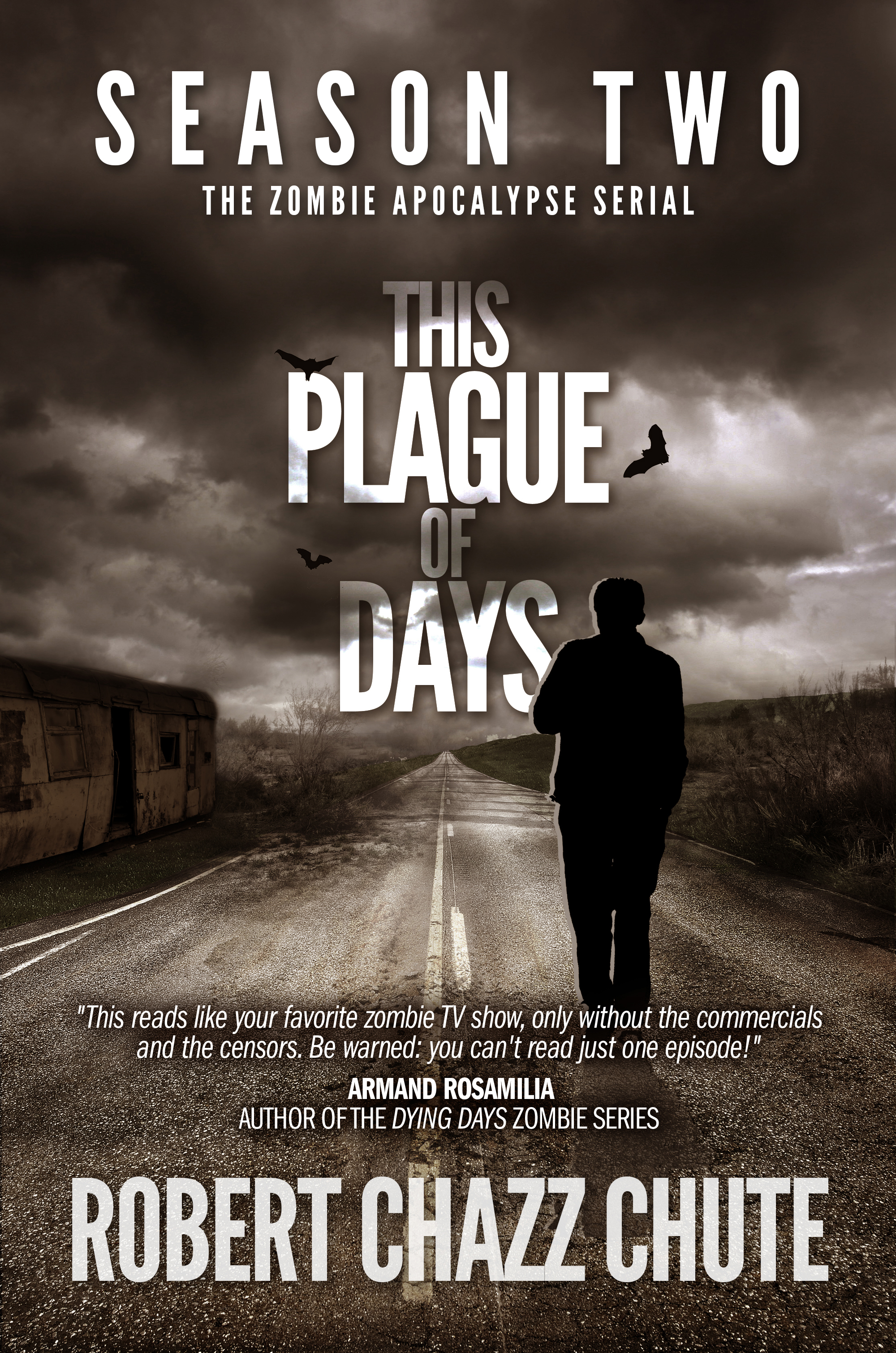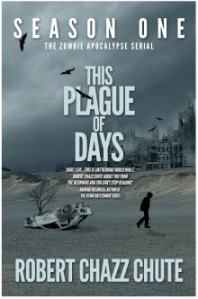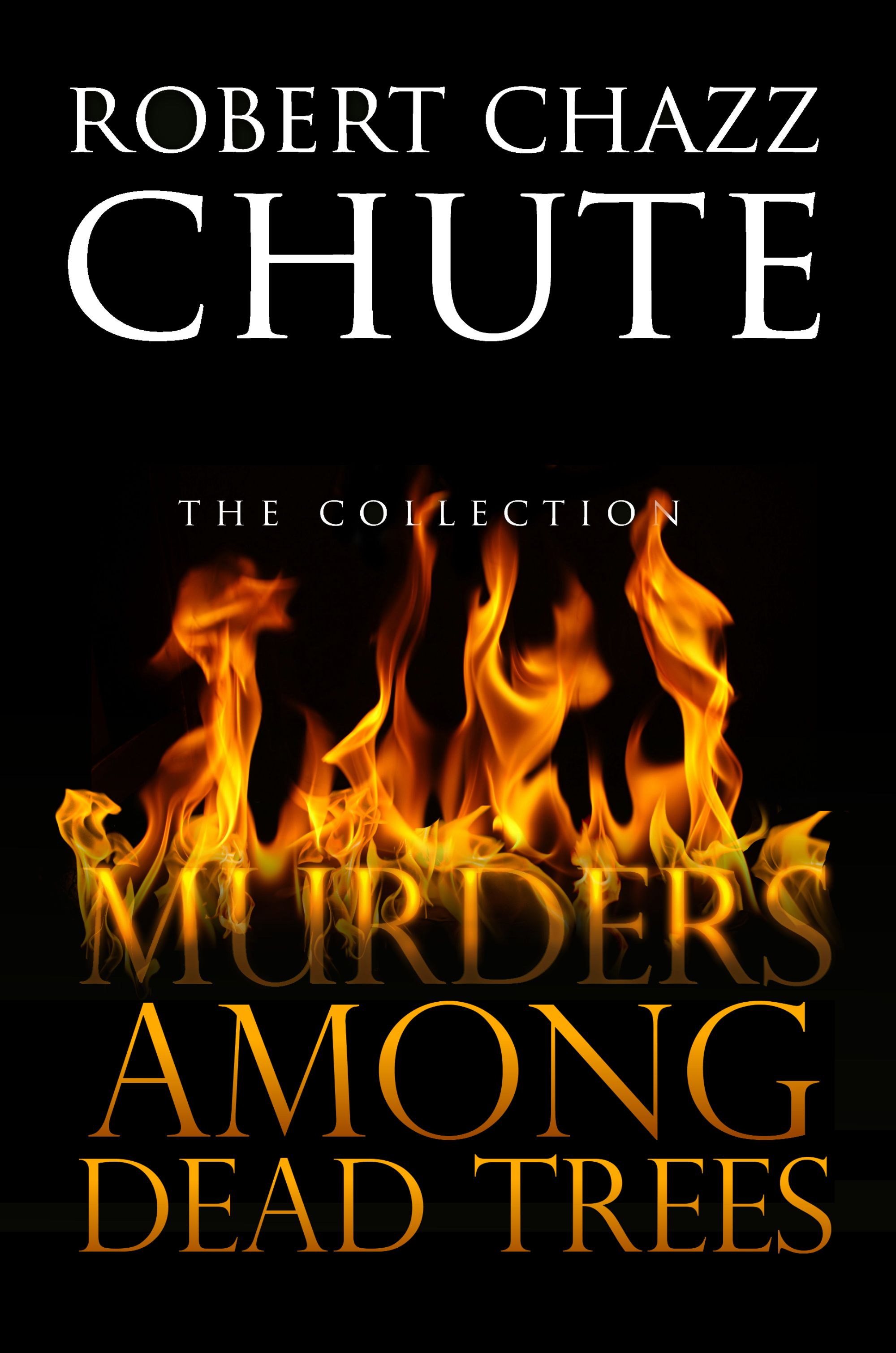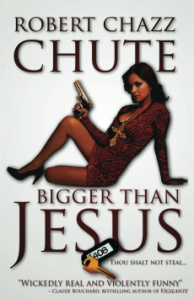(Editor’s Note: Everybody tracks income. We aren’t so enthused about tracking outgo, me included. Fortunately, author Mark Victor Young has some thoughts on that today. ~ Chazz)
Guest Post by Mark Victor Young
“When embarking on a new venture where the returns are likely to be modest, or at the very least uncertain, the quickest way to get into the black is to keep your costs to a minimum.” This has been my guiding principle since the beginning of my Indie Author journey. I’m having a great time doing it and all, but I want this thing to be real first and foremost, so anything I can do myself, I will do. My time is free and I don’t mind spending it on myself.
There are tons of Book Marketing platforms out there who will tell you they have the magical key to success for an Indie Author and it will only cost you $20 per month, or $100 per year, etc. Just put “Indie Author” in your twitter bio and see how fast they find you and promise you success… for a small fee. But at $2.99 per e-book, I make $2.00/book, so I have to sell 50 books just to break even on a $100 expense. How much would I have to do by myself, using free self-promotional tools, to sell 50 e-books? I don’t know, but I know that when I did, I’d be $100 to the good.
Let’s look at my start-up expenses and see what I consider to be necessary costs and where you could cut corners.
Scrivener is an Indie Author’s best friend. It is a compositional and editing platform that allows you to format your book as a PDF, ePub, Kindle or Paperback and upload it directly to the various sales platforms. This allows you to control your own destiny and not have to rely on one platform (ie. Smashwords) acting as an intermediary with all the others and grabbing a slice of your revenues in the process. It costs about $40 (I found a 10% off coupon online – that is two e-books worth of revenue saved!) and it is well worth it.
Registering your business as a Sole Proprietorship or Corporation says to the world that yours is a serious venture and is worthy of respect. Registering your business will also have some tax advantages down the line if your sales start rolling. Likewise, paying for a custom domain (myname.com) is a small cost that sends a message that you might be worthy of someone’s hard earned three bucks. Sure, you could just operate as an individual and go with a myname.wordpress.com or myname.blogspot.com and save both fees. I have nothing against this and would commend you on your frugality.
If you’re planning to offer your books for sale in paperback, you are going to need to see the physical items to really make sure you are putting a quality product out there that will reflect well on you. This will mean shipping yourself some proof copies as well as taking a hard look at the online editing software. But this is also an opportunity to grab some hard copies to use for local, in person sales opportunities (as long as they are what you expected and aren’t full of formatting problems or whatever). CreateSpace (division of Amazon.com) will let you have up to 5 proof copies for a few bucks each plus postage. Make a small change to alter the file and they will let you proof it again (by ordering 5 more copies – see where this is going? J).
I contacted hundreds of book bloggers through e-mail and social media to ask them to review my first book and only one required a physical copy. This is good, because the postage was frightening! There were plenty out there who would gladly accept a free ePub or Mobi (that I could supply, thanks to Scrivener) for their e-readers. One even purchased the e-book to review it, because she felt it was important to support Indie Authors. Can’t argue with that! But this is a great example of something time consuming but free which will pay off in publicity and promotion. Several bloggers even agreed to publish an interview or promotional feature on me with no mention of a charge at all. I only heard back from about 1 in 20 that I contacted, but I was happy with those responses, I can tell you.
You’ll notice that I have incurred no costs for book cover design. That’s an interesting story that may be unique to me. My wife is an excellent artist and has a background in marketing and publishing. She designs all my covers for free, so I don’t have any costs in that regard. Sorry – don’t hate me! Here are the covers for my first two novels, which have garnered all kinds of compliments and positive attention:
But that doesn’t mean that someone who is not similarly wedded need bear heavy costs in this area. You may know an artist who could help with this in exchange for you promoting their services on your website or social media. Find an author whose covers you love and ask who they use. If you can’t find something fabulous and free, Smashwords has a list of cover designers, some of whom will charge less than $100 to design your book cover. Sometimes you can also save money by going with a ready-made cover. Here are some my wife came up with and here are some by Kit Foster.
This is not an area for skimping. Don’t send your book out into the world if it looks like a public domain work from Project Gutenberg. That will send a message that your book should be free, or worse, isn’t considered worthy of a great cover, so won’t be worthy of their time. Don’t settle for something that LOOKS self-published (in the amateurish sense). People do judge a book by its cover, unfortunately, so you will need a great-looking, professional finished product whichever way you go.
There are no guarantees of success for Indie Authors. But there are no guarantees with or without spending money on third party promos. The more you spend in chasing book sales, the more profit gets eaten up by these marketing and promotional expenses. If you consider this to be a long term, truly independent venture and you keep at it and keep adding to your list of books for sale, even a modest success will be income that is all yours to keep. If, that is, you haven’t already paid out all your profits to third parties in advance. If you’re determined to use some service that you think will really pay off, make a deal with yourself. Wait until you’ve made $100 more in revenues than all the expenses you’ve incurred and then spend it on that great book marketing opportunity. That way every sale it generates will be putting money in your pocket. J
Best of luck on your own Indie Author journey!
~ Find out more about Mark on his website, MarkVictorYoung.com.
Filed under: author platform, books, controlling costs, indie, indie authors, indie publishing, Kit Foster, Kit Foster Design, mark victor young, once were friends, publishing, risk, self-publishing

